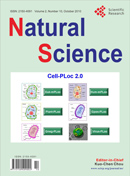 The authors of three papers in Rheumatology International about systemic sclerosis, also known as scleroderma, are retracting them after patients were misidentified in databases. According to the three notices:
The authors of three papers in Rheumatology International about systemic sclerosis, also known as scleroderma, are retracting them after patients were misidentified in databases. According to the three notices:
This article has been retracted at the request of the authors. The authors made a serious statistical error which unfortunately invalidates their results.
Corresponding author Metin Isik tells Retraction Watch that the error was adding a patient with systemic sclerosis database twice, and adding another patient with polymyositis, not systemic sclerosis, to the sclerosis database. (Why the journal didn’t spell that out in the notice is anyone’s guess, but we’ve asked the editor for comment and will update with anything we hear back.)
It’s easy to see how three patients would affect the results of “Systemic sclerosis and malignancies after cyclophosphamide therapy: a single center experience,” Continue reading Patient database errors lead to three rheumatology retractions
 The journal Immunopharmacology and Immunotoxicology has retracted a 2011 paper by an Italian nursing researcher who lifted text and data from a previously published work, and made up results to fill gaps, too.
The journal Immunopharmacology and Immunotoxicology has retracted a 2011 paper by an Italian nursing researcher who lifted text and data from a previously published work, and made up results to fill gaps, too.







